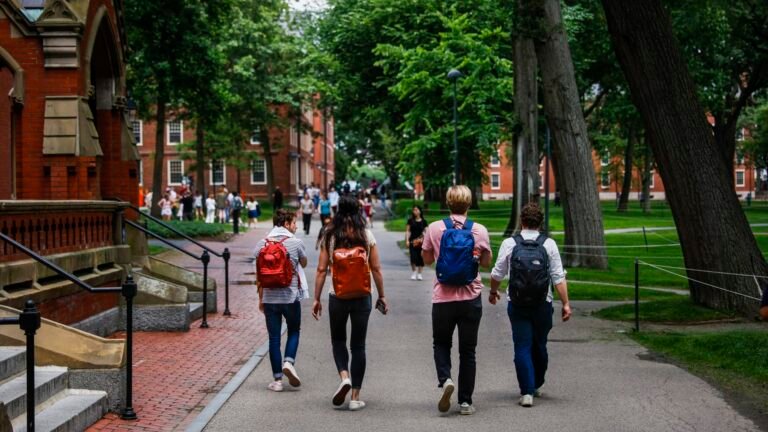
The escalating battle between the Trump administration and Harvard University over international student visas could come at a high economic cost.
Altogether, international students who studied in the U.S. contributed $43.8 billion to the U.S. economy in the 2023-24 academic year, according to the most recent data by NAFSA: Association of International Educators. In Massachusetts, alone, international students contributed nearly $4 billion and supported more than 35,000 jobs.
At Harvard, the share of international students is disproportionately high compared to most other colleges and universities. International students accounted for 27% of Harvard’s total enrollment in the 2024-25 academic year, up from 22.5% a decade earlier.
With more than 6,000 international students, Harvard supports over 1,125 local jobs and contributes $180 million to the greater Boston economy, largely through student spending, according to a new analysis by Implan, an economic software and analysis company.
More from Personal Finance:
Harvard, Trump battle may give some applicants a leg up
Harvard students are ‘frantic,’ college consultant says
Is college still worth it? It is for most, but not all
A ban on international enrollment could destabilize a vital revenue stream, said Bjorn Markeson, an economist at Implan.
“Because Harvard has a very high international student population, it’s going to have more of that impact,” Markeson said. “The economy is a network structure, so dollars flow through. They don’t just stay in one place — and when something hits Boston, it affects New England as a whole.”
A Harvard University student walks through Harvard’s campus.
Erin Clark | Boston Globe | Getty Images
Schools have increasingly sought out international students “because they compliment the student body, and that benefits all students,” said Robert Franek, The Princeton Review’s editor-in-chief.
But foreign students also typically pay full tuition, which makes international enrollment an important source of revenue for Harvard and many colleges and universities in the U.S., according to Franek.
Where the Trump, Harvard battle stands
For now, the fate of international enrollment at Harvard and elsewhere is still up in the air.
Tensions between the federal government and the Ivy League university have continued to escalate after Harvard in April refused to meet a set of demands issued by the Trump administration’s Task Force to Combat Anti-Semitism.
In May, President Donald Trump attempted to ban Harvard from enrolling international students, but a federal judge issued a temporary restraining order on Friday “to maintain the status quo.”
U.S. District Judge Allison Burroughs said the restraining order would remain in effect until June 20. Meanwhile, Harvard President Alan Garber said that “contingency plans are being developed to ensure that international students and scholars can continue to pursue their work at Harvard this summer and through the coming academic year.”
In an interview with NBC News on Friday, U.S. Secretary of Education Linda McMahon said Harvard needs to do more to combat antisemitism on campus and screen admissions of foreign students.

